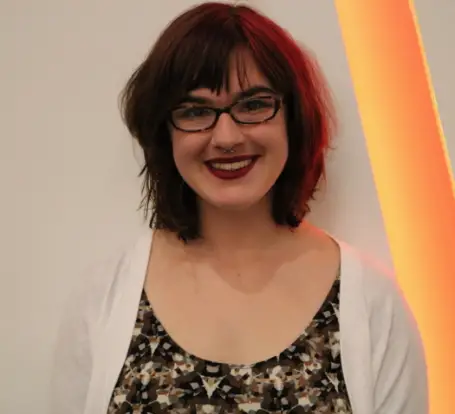Model and actress Lyndsey Scott has walked the runway in some major fashion campaigns and was the first African-American model to land an exclusive contract with Calvin Klein.
But, in addition to being a successful model, Scott is also a successful computer scientist. She can even program in five different coding languages, a pretty impressive accomplishment.
However, as BuzzFeed reports, when her coding abilities were brought up on the coding.engineer Instagram page, commenters were quick to poke fun at Scott, implying that she wasn’t actually fluent in any of the programming languages.
https://www.instagram.com/p/BCwLVVCscbQ/?taken-by=lyndsey360
Eventually, she responded in the comments, where she had some choice words for her haters.
“I have… a Bachelor’s degree from Amherst where I double majored in computer science and theater, and I’m able to live my life doing everything I love,” she wrote on Instagram. “Looking at these comments I wonder why 41% of women in technical careers drop out because of a hostile work environment.”
Scott’s comments touched on such a huge issue with women in the STEM field: low participation and retention rates for female science, technology, engineering and math workers.
Women compose roughly 20 percent of all engineering school graduates, and data released by Million Women Mentors revealed they compose only 11 percent of workers in the field. Additionally, more than half of women who initially obtain a business role in a field strongly focused on technical work ultimately leave for another industry, the Women’s Museum of California noted.
Today, the number of women in computer science has actually dropped from its rate in the 1990s and will continue to decrease if action is not taken, reveals the nonprofit Girls Who Code. Clearly, it is an issue when women are seriously underrepresented in a certain industry.
According to the American Association of University Women, stereotypes like the ones Scott faced can negatively impact the abilities of women to participate in STEM; however, better mentorship could be key to reinvigorating young women who are already involved in the field.
Million Women Mentors found that one in four female students reported their greatest challenge in college was having a lack of confidence, motivation or support, which is why so many organizations are popping up to help young women receive mentorship from other women in STEM and foster a more encouraging environment for them to achieve their professional goals.
Scott, for example, gives speeches at schools and provides guidance to young women interested in computer programming.
In addition, Girls Who Code and Women Who Code were founded to help women succeed in careers in computer science, and the first of the two, Girls Who Code, has been instrumental in helping increase the number of college-aged women who declare a computer science major by 15 times the national average in the U.S., based on the organization’s website.
Although it is disheartening that Scott, and millions of women struggling to become involved with the STEM field, still face such blatant discrimination in the workforce, the future for women in is still hopeful. Scott continues to use her platform as a model to bring more awareness to STEM-related issues of inequality, and she seems determined for women to prevail.

















